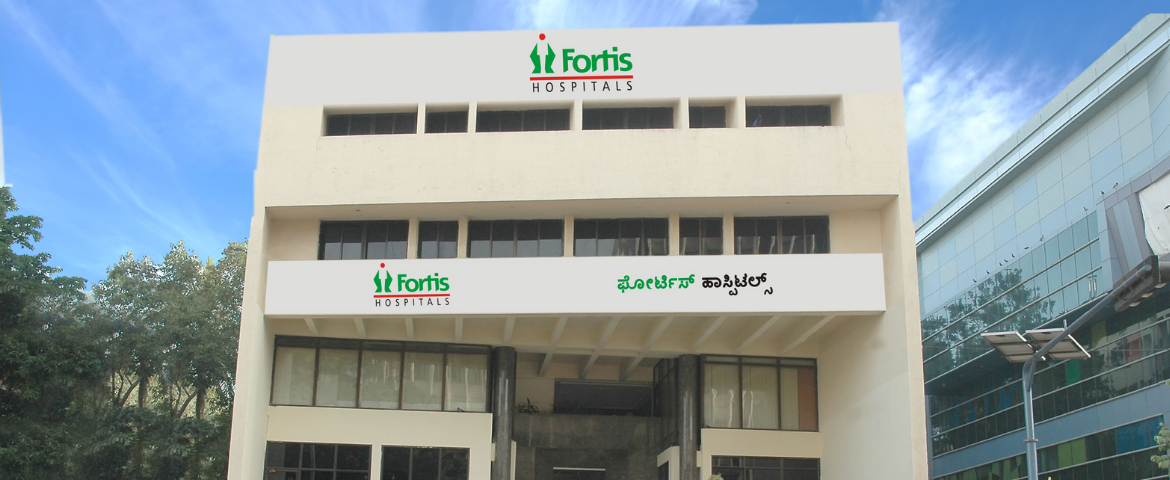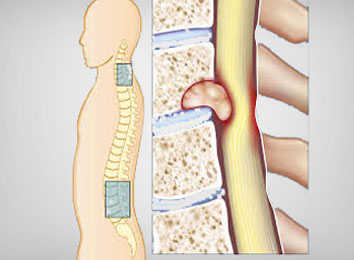Spine Tumour Surgery cost in India
The cost of Spine Tumor Surgery in India ranges
from USD 4200 to USD 10000
Procedure Description:
Spine Tumor Surgery:
The ideal course of treatment for a spinal tumor would involve totally removing the tumor, however this may not be possible due to the possibility of irreversible harm to the spinal cord and nearby nerves. Physicians also need to consider your general health and age. A treatment plan must take into account the sort of tumor, whether it originates from the spinal canal or spine's components, or whether it has traveled from another area of your body to your spine.
For the majority of spinal tumors, treatment options include:
1. Surgery: When a tumor can be removed with a reasonable risk of damage to the spinal cord or nerves, this is frequently the preferred course of treatment.
Neurosurgeons are now able to access tumors that were previously thought to be unreachable because to improved methods and tools. The ability to differentiate between healthy tissue and tumors is facilitated by the powerful microscopes used in microsurgery.
2. Radiation therapy: This can be used to treat tumors that are too dangerous to operate on, to eradicate the remains of tumors that are left over after surgery, or both.
Certain radiation side effects, such nausea and vomiting, may be lessened with the aid of medications.
3. The use of chemotherapy: Chemotherapy, a common treatment for many cancer types, employs drugs to either kill cancer cells or prevent them from proliferating. Chemotherapy alone or in conjunction with radiation therapy may be helpful for you, depending on your doctor's assessment.
Disease Overview:
A growth that forms inside your spine's bones or inside your spinal canal is called a spinal tumor. An intradural tumor, another name for a spinal cord tumor, is a type of tumor that starts inside the dura, which covers the spinal cord. A vertebral tumor is a tumor that affects the vertebrae, which are the bones that make up the spine.
Depending on where they develop in relation to the spinal cord's protective membranes, three different types of spinal cord tumors can be identified.
The primary categories of intradural tumors are as follows:
1- Intramedullary tumors, such as gliomas, astrocytomas, or ependymomas, originate in the cells that make up the spinal cord.
2- Extramedullary cancers can develop in the membrane encircling the spinal cord or in the nerve roots extending from the cord itself. These tumors don't start inside the spinal cord, but they can still impair spinal cord function by compressing the spinal cord and causing other issues. Extramedullary tumors, such as meningiomas, neurofibromas, schwannomas, and nerve sheath tumors, can cause damage to the spinal cord.
3- Metastasizing tumors from one area of the body can move to the spinal cord, vertebrae, or, in extreme circumstances, the spinal cord itself.
Any type of growth or tumor in the spine can cause discomfort, neurological issues, and perhaps paralysis. A spinal tumor has the potential to be fatal and irreversibly deformable.
Disease Signs and Symptom:
Various signs and symptoms, particularly as the tumors grow, can be caused by spinal cord tumors. Your spinal cord, nerve roots, blood vessels, or spine bones could all be impacted by the malignancies. Among the symptoms and indicators are:
1. Tumor growth-related pain at the tumor site
2. Back discomfort that frequently spreads to other body areas
3. Experiencing reduced pain, heat, and cold sensitivity
4- Blood or bladder function loss
5. Difficulty walking, which can occasionally result in falls
6- Nighttime back discomfort that gets worse 7- Sensation loss or weakness, particularly in the arms and legs
8- You may have slight or severe muscle weakness in various body areas.
Disease Causes:
Back discomfort can have numerous origins, and most of the time, a tumor is not the reason behind it. However, as spinal tumors require prompt detection and treatment, consult your physician about any back pain you may be experiencing if:
1. It is tenacious and forward-thinking
2- You have a history of cancer and this is not related to your activity 3. It worsens at night 4. You experience new back pain
5. You also experience additional cancer symptoms such nausea, vomiting, or lightheadedness.
6. Seek emergency medical assistance if you encounter:
7- Increasing numbness or muscle weakness in your arms or legs
8- Modifications to bladder or bowel function
Diagnosis for Disease:
Spine Tumor
Because spinal tumors are uncommon and have symptoms that are similar to those of more frequent illnesses, they may occasionally go unnoticed. Because of this, it's crucial that your doctor conducts both a general physical and a neurological exam, as well as knows your whole medical history.
These tests can assist your doctor in confirming the diagnosis and locating the spinal tumor if they suspect one:
1. Magnetic resonance imaging (MRI) of the spine: A strong magnetic field and radio waves are used in an MRI to provide precise images of your spine, spinal cord, and nerves. MRI is typically the test of choice for identifying malignancies affecting the spinal cord and surrounding tissues.
2. CT (Computerized Tomography): A narrow radiation beam is used in this examination to provide finely detailed images of your spine. In order to highlight aberrant alterations in the spinal cord or spinal canal, it is occasionally coupled with an injected contrast dye. Spinal tumors are infrequently diagnosed with the use of a CT scan.
3. Biopsy: Examining a small tissue sample (biopsy) under a microscope is the sole method to pinpoint the precise type of spinal tumor. Options for treatment will be determined in part by the biopsy results.
Disease Treatment:
The ideal course of treatment for a spinal tumor would involve totally removing the tumor, however this may not be possible due to the possibility of irreversible harm to the spinal cord and nearby nerves. Physicians also need to consider your general health and age. A treatment plan must take into account the sort of tumor, whether it originates from the spinal canal or spine's components, or whether it has traveled from another area of your body to your spine.
For the majority of spinal tumors, treatment options include:
1. Surgery: When a tumor can be removed with a reasonable risk of damage to the spinal cord or nerves, this is frequently the preferred course of treatment.
Neurosurgeons are now able to access tumors that were previously thought to be unreachable because to improved methods and tools. The ability to differentiate between healthy tissue and tumors is facilitated by the powerful microscopes used in microsurgery.
2. Radiation therapy: This can be used to treat tumors that are too dangerous to operate on, to eradicate the remains of tumors that are left over after surgery, or both.
Certain radiation side effects, such nausea and vomiting, may be lessened with the aid of medications.
3. The use of chemotherapy: Chemotherapy, a common treatment for many cancer types, employs drugs to either kill cancer cells or prevent them from proliferating. Chemotherapy alone or in conjunction with radiation therapy may be helpful for you, depending on your doctor's assessment.
Country wise cost comparison for Spine Tumour Surgery:
| Country | Cost |
|---|---|
| India | $5130 |
| Turkey | $5449 |
Treatment and Cost
20
Total Days
In Country
- 5 Day in Hospital
- 2 No. Travelers
- 15 Days Outside Hospital
Treatment cost starts from
$5700
Popular Hospital & Clinic
Featured Hospital
0 Hospitals
Related Packages
More Related Information
Some of the top rated hospitals are:
- Turkey
- Kolan International Hospital, Sisli
- Istinye University Bahcesehir Liv Hospital
- Istinye University Medical Park Gaziosmanpasa Hospital
- I.A.U VM Medical Park Florya Hospital
- Altinbas University Medical Park Bahcelievler Hospital
- Medical Park Antalya Hospital
- Medical Park Tarsus Hospital, Mersin
- Thailand
- Bangpakok 9 International Hospital
- Bumrungrad International Hospital
- Bangkok Hospital
- Bangkok International Hospital
- Samitivej Hospital
- BNH Hospital
- Aek Udon International Hospital
- Phuket International Hospital
- Bangkok Christian Hospital
- Thonburi Hospital
- Kasemrad Hospital Sriburin
- Italy




